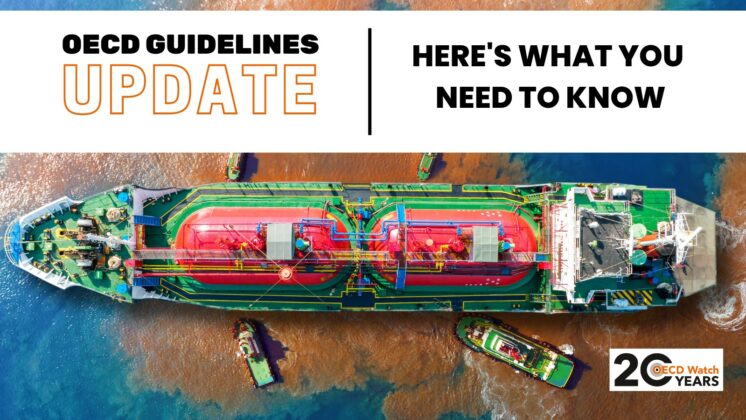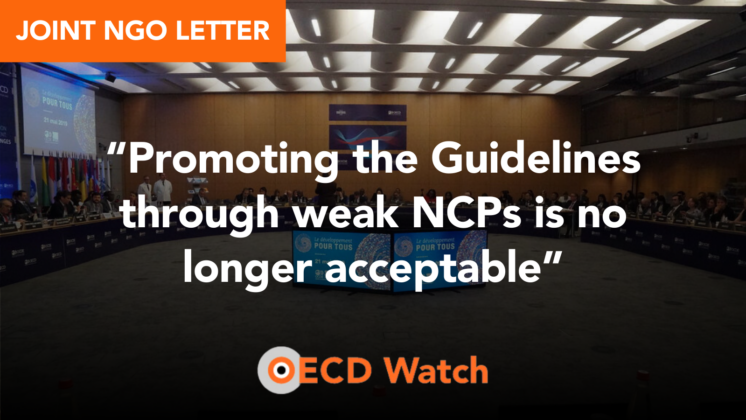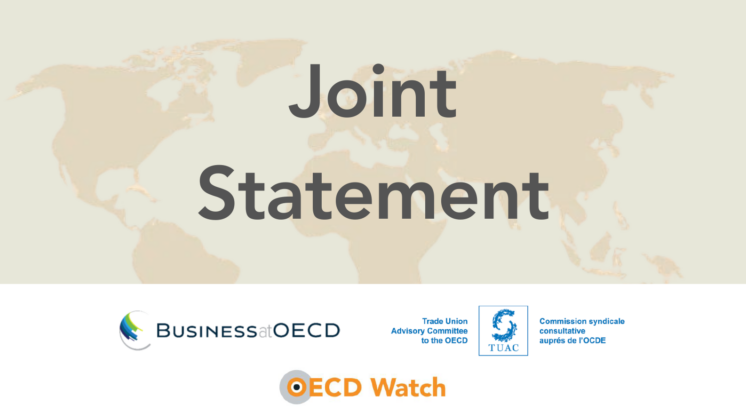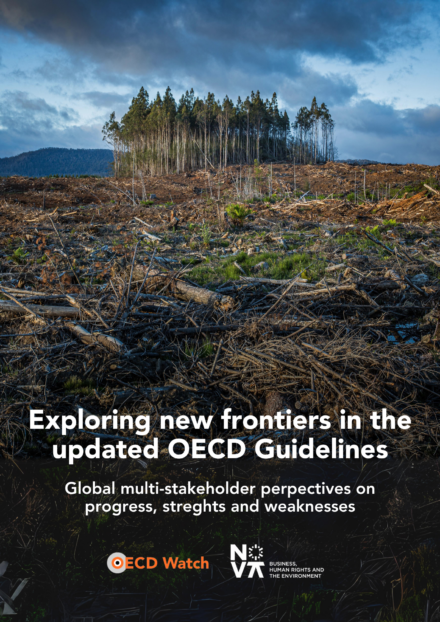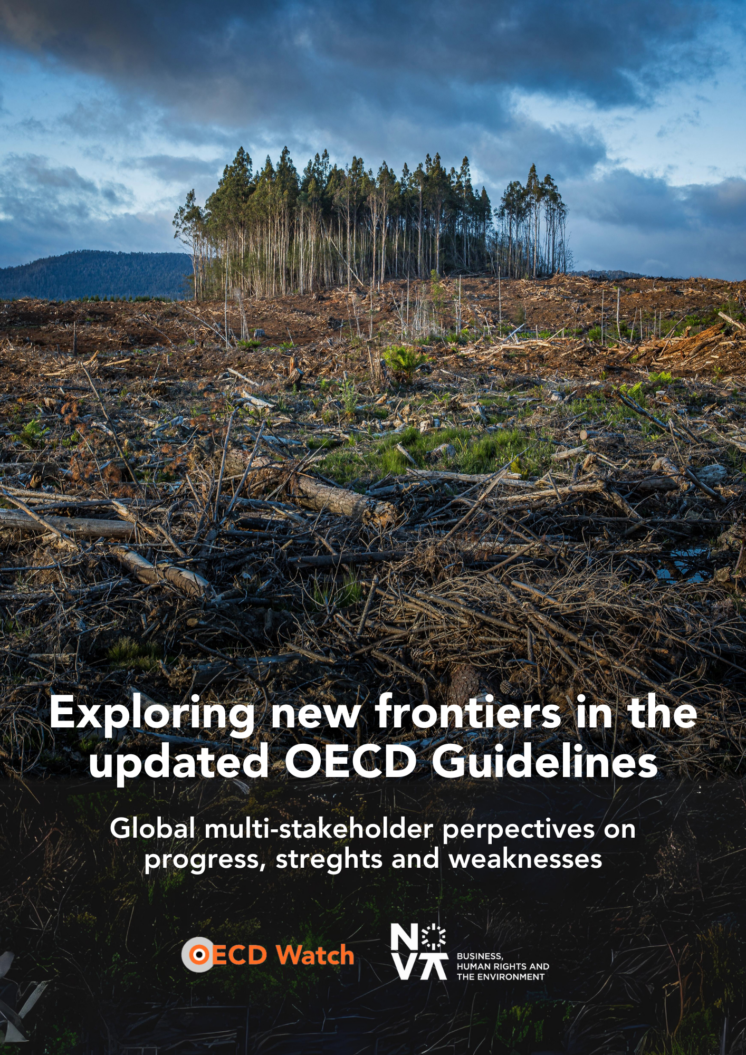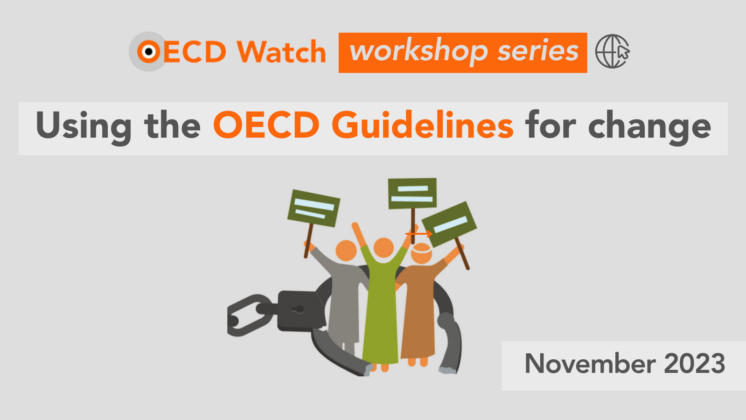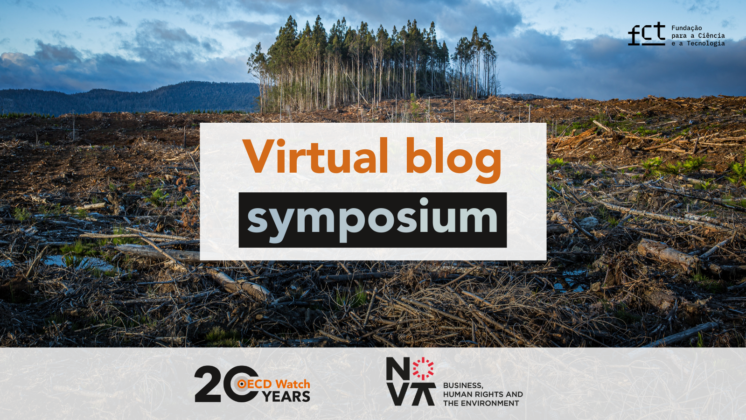OECD Watch statement on the "targeted update" of the OECD Guidelines
Today, 8 June 2023, the OECD released a “targeted update” of the OECD Guidelines for Multinational Enterprises. Negotiations on the newly renamed “OECD Guidelines for Multinational Enterprises on Responsible Business Conduct” inevitably involved trade-offs and compromises. Nevertheless, OECD Watch believes the net result is positive. The majority of updates strengthen this authoritative global standard on responsible business conduct (RBC). In many areas, the updates reinforce and therefore bolster other leading international norms on RBC, and on some topics the new Guidelines advance normative standards.
The update of the Guidelines is particularly timely as it comes at a key moment in the development of mandatory due diligence legislation, which is largely based on the Guidelines, in Europe and globally. The year 2023 also marks an important moment for the OECD Watch network, which was established 20 years ago.
Key updates in the OECD Guidelines
OECD Watch highlights the strongest updates for use in civil society complaints and advocacy, including:
- Climate change and environmental impacts: The Guidelines now expect corporations to identify and address through due diligence their adverse impacts on climate change, biodiversity, deforestation, pollution, and other environmental concerns. Detailed text on climate change brings the Guidelines into alignment with the Paris Agreement, such as by explicitly requiring adoption and monitoring of mitigation targets that take into account scope 1, 2, and 3 greenhouse gas (GHG) emissions. The Guidelines also address other concerns, like discouraging use of carbon offsets and ensuring their integrity.
- Just transition: The Guidelines recognise the responsibility companies have in achieving a just energy transition and call on enterprises to avoid and address the social and environmental impacts of their transition both from fossil fuels and towards renewable energy sources.
- Meaningful stakeholder engagement: The Guidelines call on enterprises to engage meaningfully with all stakeholders – in particular those impacted – about business activity that may affect them. Engagement should be two-way, conducted in good faith, responsive to stakeholders’ views, timely, accessible, appropriate, safe, and adapted to remove barriers to engagement.
- Marginalisation, vulnerability, and intersectionality: The Guidelines expect enterprises to pay special attention to impacts on marginalised or vulnerable groups and take account of the distinct and intersecting risks rightsholders may face as a result of their individual characteristics.
- Human rights defenders: The Guidelines call on enterprises to refrain from reprisals against human rights defenders, address impacts of reprisals in their own and business partners’ operations, and help promote safe space.
- Respecting all value chain workers’ rights: The Guidelines call on enterprises to respect the rights of all workers in their value chains, not merely employees of the enterprise, including the rights to form unions and collectively bargain.
- Strengthened guidance on full value chain due diligence: The Guidelines now align with and deepen the OECD’s robust RBC due diligence framework, such as by referencing the six-step due diligence process, covering both up- and downstream impacts including by individual users, and more clearly stating expectations for enterprises to build leverage over business relationships.
- Animal welfare: For the first time ever, the OECD Guidelines provide a progressive definition for good animal welfare and call on enterprises to respect animal welfare standards.
Standards areas needing further guidance and limitations
In a few areas, the standards updates do not go as far as civil society had expected and advocated. OECD Watch calls on the OECD to develop, through close consultation with rightsholders and civil society, improved guidance on engagement with groups experiencing vulnerability or marginalisation as part of due diligence, particularly on respecting the rights of Indigenous Peoples, human rights defenders, women, and other rightsholders, and on addressing the adverse impacts of technology and digitalisation.
The biggest failing of the update is that it largely did not raise requirements for improving the implementation of the Guidelines through the National Contact Point (NCP) mechanisms. NCPs are critical to the promotion and correct application of the Guidelines, but in OECD Watch’s view, have not been adequately effective in implementing the text. While the updated text reflects extensive improved recommendations and guidance for NCPs, the proposed improvements are still largely optional. The failure to ensure effective NCPs means that legislation mandating due diligence in alignment with the OECD Guidelines is needed more urgently than ever.
OECD Watch’s briefing paper elaborates on the key updates in the standards for enterprises, important gains in the implementation procedures for governments, and standards areas needing further guidance.
OECD Watch’s statement and briefing paper is also available in Arabic, French, Portuguese, and Spanish.
The 2023 version of the OECD Guidelines is available for download in English and French via the OECD’s website.
read more less
